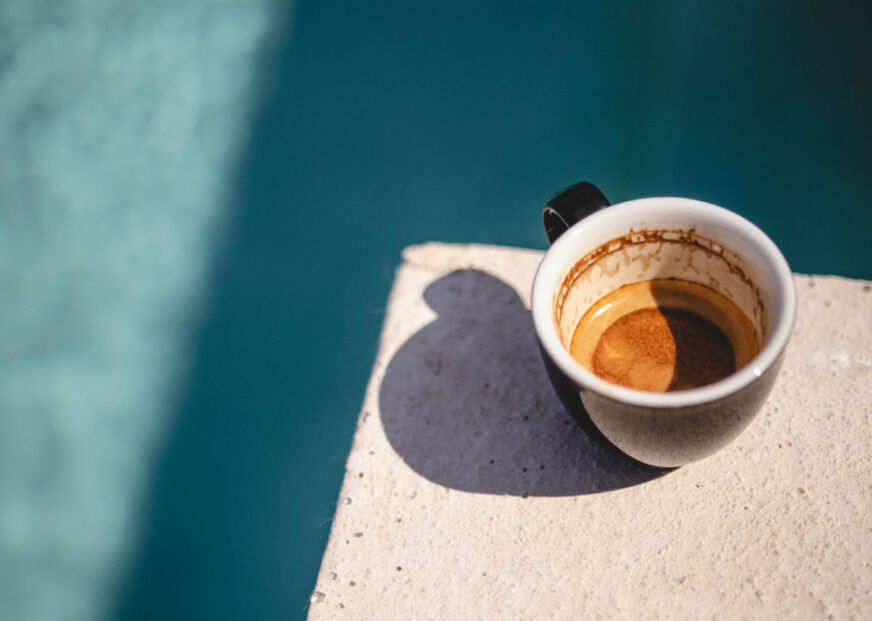4 MIN
TRAVEL TIPS
Everything you need to know about Greek coffee

© Ran Berkovich @berko, UnsplashGreece may not be the first place in the world that comes to mind when you think about coffee, but the Greeks love their coffee. Coffee is an integral part of Greek culture, and I can’t think of many other better places in the world to sit and enjoy coffee than in a taverna in Greece. Greece is renowned for its beautiful islands, idyllic beaches, white painted villages and great food. It isn’t so much known for its coffee, but it should be, because it is distinctive. Although for the less-hardened coffee drinker, Greek coffee can be an acquired taste! Greece is 17th on the list of top coffee-consuming countries in the world. Greeks consume 5.5 kilos of coffee per capita each year. As the Greeks drink so much of the stuff, you would hope they know a thing or two about making it. I spoke with European coffee packaging experts, The Bag Broker, and they said the coffee industry in Greece is huge and that drinking coffee there is a daily ritual and a serious affair. Visit any Greek village and you’ll see a huddle of older men perched outside the local café (kafeneio) enjoying a traditional Greek coffee at all times of day and night. Drinking coffee is an inherent part of Greek culture.
What is Greek coffee? Greek coffee is similar to Turkish coffee and other coffees in the region, such as Armenia, Cyprus, Serbia and Bosnia (it made its way to Greece during the Ottoman occupation). For Greek coffee the beans are roasted at a specific temperature and ground down into a fine powder. Greek coffee is boiled, rather than brewed. In the UK, you can buy Greek coffee in a Greek delicatessen or even from Amazon. Because it is boiled, rather than brewed, Greek coffee has a distinctive rich and creamy flavour. Is Greek coffee healthier than other types of coffee? Greek coffee is made from Arabica coffee beans, which are ground to a very fine powder (much finer than the coffee grinds in many other countries around the world). The coffee in Greece is similar to that in Turkey and throughout the Middle East. In one study, boiled Greek coffee, which is rich in polyphenols and antioxidants, and contains only moderate amounts of caffeine compared to other coffees around the world, was found to increase life expectancy. Researchers found when investigating why residents from the Greek island of Ikaria live longer than practically anyone else in the world, that the one thing that set Ikarians apart is their habit of drinking a cup of Greek coffee every day.
How do you make Greek coffee? Greek coffee is made in a tall, narrow coffee pot called a briki, which is used to heat water, ground Greek coffee and sugar on a stove. The general rule is to use one teaspoon of sugar for each teaspoon of ground coffee unless you prefer it without sugar (in which case omit), or for a sweeter version add more sugar. The coffee pot (briki) is then put on the stove over a low heat. Once the coffee starts to foam, remove from heat, let the bubbles disappear and then heat again. When it foams again, it is ready. Pour it into a cup and add milk if you prefer, though the best way to enjoy Greek coffee is black and sweet. See more information on how to make an authentic Greek coffee here. Ordering Greek coffee Words you need to know when ordering a Greek coffee are: • Yassas, hello! • Elleniko kafe, Greek coffee • Sketos, no sugar • Metrios, one sugar • Glykos, two sugars • Variglykos, excessively sweet and strong • Me gala, with milk • Horis i gala, without milk • Efharisto, thank you© Tyler Nix@jtylernix, Unsplash
What else you should know about Greek coffee Greek coffee is strong, so it is typically served with a glass of water. It is traditionally served black, but some people prefer to add milk. It is served in a small cup, like an espresso, and is meant to be sipped slowly. Don’t drink Greek coffee as soon as it is served. Let the grounds settle at the bottom of the cup first (don’t drink the grounds). There is a bit of an art form to drinking Greek coffee, largely because of the grounds. Here’s a quick guide on how to drink Greek Coffee like a local! The best thing is that it’s not uncommon for a Greek coffee break to last for 1-2 hours! Dakota Murphey The Bag Broker© Mariamichelle, Pixabay



